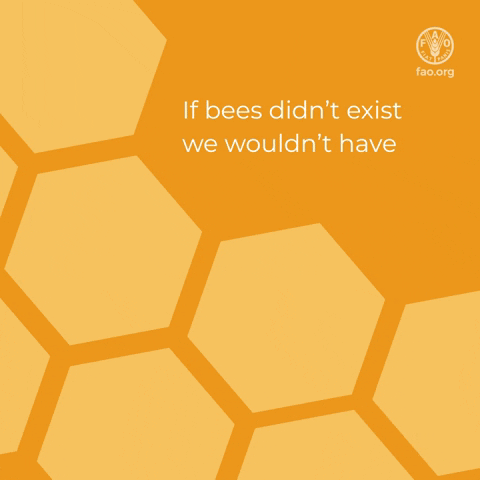- The Hive
- Posts
- Calling All Earth Stewards: A Deep Dive into Pollinator Week
Calling All Earth Stewards: A Deep Dive into Pollinator Week
Celebrate the Tiny Champions Who Keep Our Food Chain Buzzing!

Every June, we unite to celebrate a group of vital, yet often overlooked, heroes – pollinators!
From June 17th to 23rd, Pollinator Week shines a light on the essential role these tiny creatures play in our ecosystems, economies, and even the delicious food on our plates.
Who are the Pollinator Powerhouse Crew?
The term pollinator encompasses a diverse and fascinating cast of characters. Bees, butterflies, moths, hummingbirds, some flies, and even certain bats make up this critical team.
The Pollinator Partnership, a non-profit organization leading the charge on pollinator conservation, states: "Pollinators are animals that transfer pollen grains from the male part (anther) of a flowering plant to the female part (stigma) of another flower, or to the same flower (self-pollination). Pollination is a vital step in plant reproduction that often results in the production of fruits, nuts or seeds."
This seemingly simple act of transferring pollen sets off a ripple effect with far-reaching consequences.

Why Should We Celebrate Pollinators?
Pollinators are the backbone of a healthy and thriving ecosystem. They're responsible for the reproduction of over 75% of the world's food crops, including fruits, vegetables, nuts, and even some spices.
The Pollinator Partnership emphasizes this crucial role: "Without the service of pollinators, our diets would be drastically different. We would see a decline in the variety, quality, and affordability of the foods we eat."
Beyond food security, pollinators play a vital role in supporting biodiversity. The fruits and seeds produced by pollinated plants feed a wide range of animals, from birds and insects to mammals. A healthy pollinator population contributes a flourishing natural world.
Pollinators in Peril: A Cause for Concern
Unfortunately, pollinator populations are facing a multitude of threats, including:
Habitat Loss: The destruction of natural habitats, such as meadows and forests, reduces the availability of food and nesting sites for pollinators.
Pesticide Use: The widespread use of pesticides can harm and kill pollinators, disrupting their vital role in the ecosystem.
Climate Change: Rising temperatures and changing weather patterns can disrupt pollinator life cycles and migration patterns.
The decline of pollinator populations has serious consequences for our food security, environment, and overall well-being.

How Can You Be a Pollinator Champion?
The good news is that we can all play a role in protecting pollinators and ensuring their continued survival. Here are a few ways you can get involved:
Plant a Pollinator-Friendly Garden: Attract bees, butterflies, and other pollinators with colorful, nectar-rich flowers. Native plants are a great choice, as they are adapted to the local climate and provide essential food sources for pollinators.
Reduce Your Reliance on Pesticides: Opt for natural pest control methods whenever possible to protect pollinators from harmful chemicals.
Educate Yourself and Others: Share the importance of pollinators with your friends, family, and community. Raise awareness about the threats they face and encourage others to take action.
Support Pollinator Week Activities: Look for local events organized by environmental groups or educational institutions during Pollinator Week. These events offer a fantastic opportunity to learn more about pollinators, participate in fun activities, and connect with others who are passionate about conservation.
Join the Buzz and Make a Difference!
By taking action, even in small ways, we can all help to create a world where pollinators can thrive.
This Pollinator Week, let's celebrate these tiny titans and commit to becoming stewards of a healthy planet. Visit the Pollinator Partnership website for more information and resources to get involved in this critical cause.
Remember, together we can ensure a future filled with vibrant ecosystems, delicious food, and a world that buzzes with life!
*In Australia, Pollinator Week is November 9 to 17.
Reply